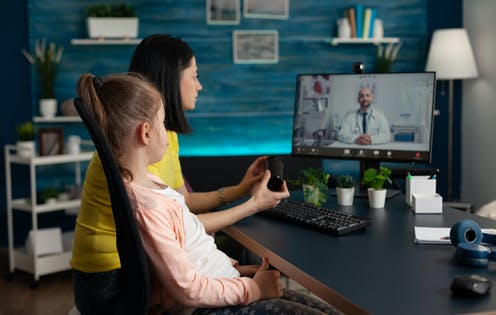
The incidence of brain cancer in children in Canada is three in 100,000. Brain cancers are treatable when they are localized but prognosis worsens and they become less treatable as they grow larger, spread throughout the brain and in some cases metastasize through the cerebrospinal fluid down the spine and around the brain. They are aggressive, as brain cancers are the second most common cause of childhood cancers after leukemia but the most common cause of childhood cancer mortality.
Many aggressive brain cancers occur before the age of five, and are difficult to diagnose in young children. Also, children cannot verbalize a lot of complex or subtle neurological symptoms like dizziness or double vision.
Very often in the last year or so, I have seen children for the first time when they have already reached the end stage of brain cancer. These are children whose illness is dreadfully apparent. They are children whose lives we could have saved if they had been diagnosed even six months earlier.
I know why that didn’t happen: the COVID-19 pandemic, and its effects on our health-care system and its patients. Sometimes families were too reluctant to take their children to see their family physicians, or regular care was only accessible through online appointments, where so much less information is available to the clinician. This includes the vital observations that can only come from a physical examination.
Table of Contents
Virtual visits
Seeing a patient on a screen is nothing like examining a child in person. There are cues we get from muscle tone, eye clarity and subtleties in breathing, for example, that when taken together with other information can flag serious problems in time for us to treat them.

(Shutterstock)
The fear and distraction generated by our approach to the pandemic drowned out other concerns, with dreadful consequences. So while these kids haven’t been dying from COVID-19, they have certainly been dying because of it.
Sadly, I’m certain that these preventable deaths are happening throughout the health-care system, among children and adults alike. Patients have delayed seeking diagnosis and treatment because they were more afraid of the virus than of whatever else was happening.
Read more:
Collateral damage: The unmet health-care needs of non-COVID-19 patients
My colleagues talk about adult patients who skipped diagnostic procedures like colonoscopies, ignored chest pains or failed to investigate other serious concerns. People suffering from other conditions have become the collateral damage caused by the ongoing pandemic.
This is heartbreaking and frustrating. Public-health messaging across North America intended to keep people safe from the pandemic. Based on what I see in my own practice, I worry that it was too alarmist and too negative. The messages may have deterred patients and caused them to avoid hospitals and clinics for fear of getting COVID-19. And the media focus on the pandemic created a vigilance for COVID-19 at the expense of watching for symptoms of other diseases.
I fear that once the full extent of these preventable deaths is known, it will far exceed the number of deaths due to COVID-19.
Health care after the pandemic
As we appear to be emerging from the worst stages of the pandemic, I am bracing myself to see more children with advanced terminal cancer, knowing they could have lived if not for this well-meaning but misguided approach.
It was encouraging to see the Ontario government’s recent announcement about adding resources to non-COVID-19 care to help with backlogs, but the fact is that for too many patients, any care they receive now will come too late.
Certainly, the public needed to know about and protect itself from the threat of the pandemic virus — the collective action of clinicians, scientists, front-line workers and others outside the medical system has helped mitigate the damage.
Since the spring of 2020, though, it’s almost as if there were no other health problem but COVID-19. While in the foreground we’ve been assiduously washing our hands, wearing our masks, keeping our distance and getting our vaccines, the drumbeat of other serious health problems has continued as steadily as ever.
Had we all had a choice about how to approach the new crisis, I dare say we’d have preferred a more balanced, nuanced message about taking care of all health concerns simultaneously, rather than replacing almost everything else with a single public health issue that is ultimately worse than the one we were trying to prevent.
Even in health care, I think too many were too ready to pinch off in-person contact with patients in family doctors’ offices, community clinics, in imaging and other diagnostic services, all of which are vital conduits for earlier diagnosis of symptoms that patients can’t identify themselves.
Future pandemics
I dread what my colleagues and I have yet to discover as more patients emerge from COVID-19’s fearsome shadow. There will be months, even years of catching up as we try to care for people with advanced illnesses and conditions, while new cases of the diseases and conditions that usually keep our system full continue to develop.
As a physician, I want to help people be as healthy as they can be. I do the best I can with the circumstances but at home, late at night, I reflect on the suffering of my patients and their families and my heart fills with sorrow. I feel powerless.
The barriers were unintentional, but the impact is terrible.
We will likely see more pandemics, and sooner than we’d like. When they come, I hope we will face them with the needs of all patients in mind.
![]()
Sheila Singh receives funding from CIHR, Genome Canada and Brain Cancer Canada. She is a scientific advisor to and holds shares in Century Therapeutics Inc. and Stem Pharm Inc.























